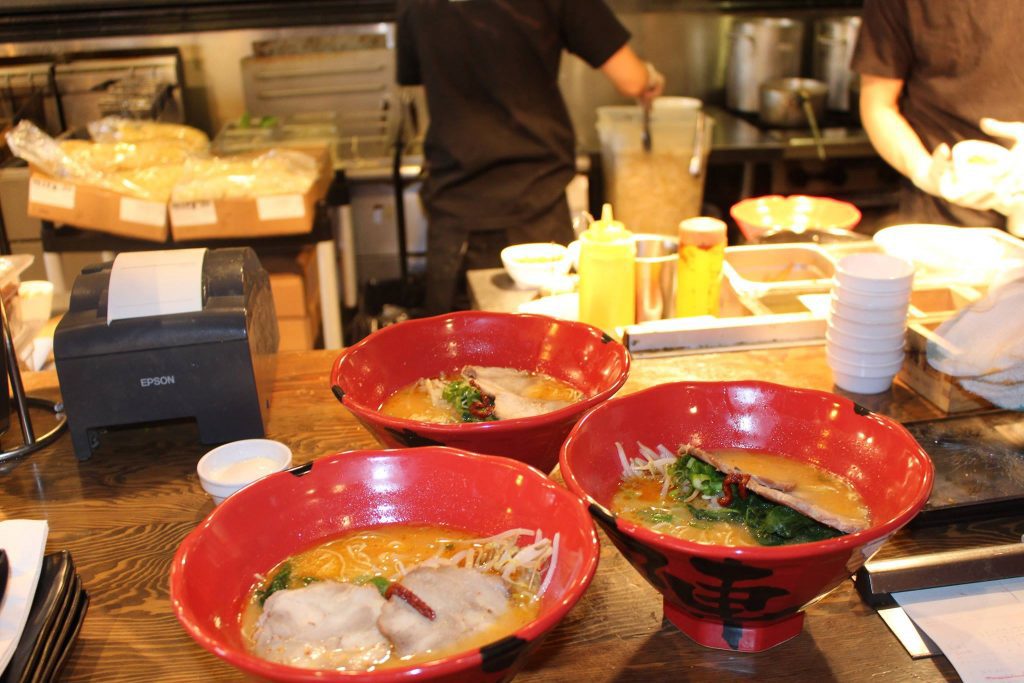Torontonians are flocking to Japanese restaurants because of the variety of food, universality and health benefits, according to staff at two Japanese restaurants.
JINYA Ramen Bar on Church Street opened just over a year ago, but it is already seeing good business. On a typical Friday night, the line stretches past the server’s podium and a crowd forms around the door, waiting for a table.
“Our ramen is different than other places (because) we have pork broth, chicken broth and vegetable broth which is a really good range because some people don’t eat pork,” said Zahra Pertiwi, who has been a manager and supervisor at JINYA since it opened last May.
“Japanese food is everywhere, and also the taste is very universal,” she said.
According to Pertiwi, customers also enjoy the restaurant’s variety of appetizers. “They don’t only eat ramen here — they get the option of chicken or even crispy chicken and creamy shrimp tempura.”
At Kinka Izakaya, just up the street from JINYA, Japanese culture is shared through an upbeat atmosphere. Loud music is blaring, and instead of individual tables and chairs there are long wooden tables and benches.
Watara Sazaki, who has been cook at Kinka Izakaya for four years, said the atmosphere is apparent when someone orders a hakka bomb. The drink is made up of chopped hakka and beer.
“When I say hakka, you say bomb,” he recounted enthusiastically. “Hakka, bomb, hakka, bomb.”
Part of the appeal of Japanese food is also its health benefits, Sazaki said. “Fish is healthy,” he added, noting that his restaurant serves sushi, ramen and takoyaki (an octopus ball).
Overall, “the Japanese tend to have a healthy attitude to food and eating,” according to a BBC article. Japanese people are known for living long lives, and their diet is thought to play a part in this.
Maleha Yasmin, a sushi-loving Ryerson student, said she picks sushi over fast food because of its health benefits.
“I just think that, being a brown person I’m usually used to eating brown foods, so sushi being a very different (thing) compared to that, the flavours are very good and different so I’m just really attracted to sushi,” Yasmin said.
“It’s a good way to have a lot of food, it does not feel too heavy because there are not too many carbs,” Jeraldyne Pallarca, a Ryerson student, said.
However, not everyone is convinced that Japanese food is as healthy as it is purported to be.
“I think it depends on the ingredients, like if it has vegetables, probably it’s healthier, and if it has meat in it or other kinds of things in it then it is less healthy,” Taimaa Jaloul, another Ryerson student, said.
“There is a lot of rice which is not always a good thing,” Pallarca said. There is “a lot of sodium, especially in things raman and like katsu, with the breading, it’s a lot of salt.”
(Infographic by Raizel Harjosubroto)
(Header photo courtesy of Daniel Hartmann)


Leave a Reply